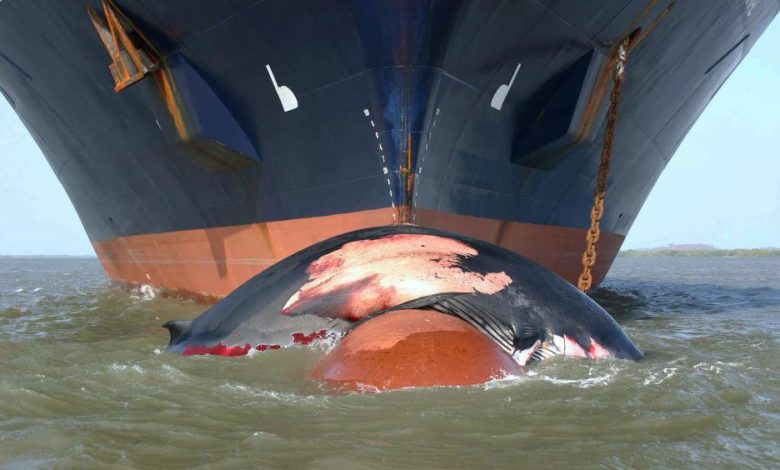Call to move shipping lane further south from Sri Lanka to save whales falls on deaf ears

Efforts by a non-government organisation (NGO) to get containerlines to slow down when transiting south Sri Lanka and to transit the area further south to protect whales in the area have thus far fallen on deaf ears.
Pigmy blue whales and other whales feed and breed in the area of the Indian Ocean just south of Sri Lanka. The same area is crossed by more than 5,000 ships per month. Not only do whales die from colliding with these ships, but the sound from the vessels affects breeding and the local ecosystem, according to Friend of the Sea’s founder and director Paolo Bray.
This July the NGO made contact with the World Shipping Council (WSC) as well as the top 10 boxlines and Sri Lankan authorities to try and get them to take up the matter. The deadline for giving a proposal to the International Maritime Organization passes on November 27.
Friend of the Sea has urged the World Shipping Council and the top ten liner companies to immediately engage at slowing down their ships to less than 10 knots and move their lanes 15 miles south, possibly creating an area to be avoided.
“The WSC is not collaborative enough,” Bray told Splash. “We have sent the document to be sumbitted to the Sri Lanka government, but I am afraid with no pressure from the media nor from the WSC, this will not happen in time.”
“Each year, the estimated 300 whales feeding near the southern coast of Sri Lanka are hit over 1,000 times by up to 300 m long vessels. 50 of these strikes are likely to be lethal for the rare pygmy blue whales. 2016 could be the year of no return for the whales in the area,” Bray warned.

Move the shipping lane safe Gods lovely whales.
yes i do agree with you.. me being a seaman i can understand it.. eco systems needs to be protected
With 171 IMO member states that have the ability to submit a proposal to the IMO, it seems that Friend of the Sea Founder and Chief Executive Director Paolo Bray has not cast his net very wide by only approaching Sri Lanka for support in seeking an IMO initiative aimed at protecting the Pigmy blue whales and others in the area.
Looking at how progress was recently made to protect the Right Whale, a similar approach could lead to the desired protection of the Pigmy blue whales.
To protect the Right Whale, the US National Oceanic and Atmospheric Administration put in place measures to reduce fatal whale strikes such as speed reduction. This ultimately lead to, amongst other things, the IMO endorsement of the establishment of a recommendatory seasonal area to be avoided “in the Great South Channel”, off the East Coast of the United States, where the Right Whale was vulnerable.
Engaging only one IMO member state will, however, not likely sway the body to take similar action aimed at protecting the Pigmy blue whales. To create the required momentum there first must be a combination of public awareness and an outcry for action, followed by the recruitment of several IMO member states to propose appropriate measures.
In fact this is essentially how Friend of the Sea achieved noteworthy success in regard to protecting dolphins from being killed in tuna nets in the 1980s.
Raising public awareness regarding the plight of the the Pigmy blue whales, as an initial step, may lead to similar success.
Thank you all for the great support.
Please sign our petition to have the whales saved before the deadline of 27th of Nov. Thank you! https://www.change.org/p/bwoodthomas-worldshipping-org-nils-haupt-hlag-com-signe-bruun-jensen-maersk-com-ed-cscl-lk-save-whales-from-deadly-ship-strikes-urge-world-ship-council-sign-lanes-shift-by-nov-27?recruiter=419177630&utm_source=share_petition&utm_medium=email&utm_campaign=share_email_responsive
please save the whales…I live on the south coast of Sri Lanka and we must protect them for the future generations